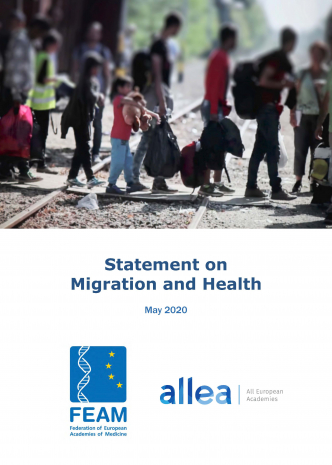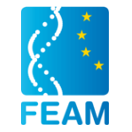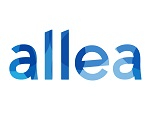European academy networks FEAM and ALLEA call on EU and national authorities to undertake crucial actions to support the health of migrants. This situation has become more critical as the lack of basic services and overcrowded conditions in refugee camps start to sound alarms all over Europe, especially during the coronavirus crisis.
The statement reviewed evidence showing that, in contrast to previous concerns, the transmission of communicable diseases from migrants does not appear to be a substantial problem. However, evidence also shows that migrants and other vulnerable populations are at high risk for several non-communicable and communicable diseases, including COVID-19.
“During this terrible crisis the issue of migrant health has been almost completely forgotten in Europe,” says Professor Luciano Saso, Vice-Rector for European University Networks of Sapienza University of Rome. “Forcibly displaced migrants are still struggling to reach Europe, exposing themselves to COVID-19. The incipient economic crisis threatens to further reduce the resources allocated by the EU to face migrant health issues.”
Academies recommend wider and easier access to healthcare services for forced migrants, and at least basic and emergency healthcare for irregular or undocumented migrants. Early access to healthcare may also lead to cost-savings for host countries.
According to Professor Alfred Spira, a member of the French Academy of Medicine, “The COVID-19 pandemic dramatically shows that the health of migrants is being considered as a marginal matter. All international and European legal instruments recognise the right of everyone to the enjoyment of the highest attainable standards of physical and mental health, and all EU Member States should act to allow access to these basic human rights for everyone, including migrants and refugees.”
The coronavirus crisis has provided a global opportunity to enhance the integration of migrants while addressing shortages of healthcare workers. The recommendations within this statement, though drafted before the COVID-19 outbreak began, have acquired new relevance as several countries such as Germany, the UK, the US and Australia are incorporating refugees with foreign qualifications to address shortages in their health workforce.
The document concludes that reliable, validated and comparable data across countries and regions is the key element that will inform policies and confront myths around migration and health. Academies offer their support to lead the dialogue and scientific work to guide policies in this complex area.
This statement has been published at a time when developing evidence-based policies is particularly important. These recommendations, if transformed into policy, will enhance the protection of migrant health and of public health overall.
The recommendations from the academies include:
- More scientifically validated data and frequent updates on migrant health should be produced and reflected in evidence-based policies.
- Increased cross-sectorial collaboration is needed to address current challenges in migrant health, also with a view towards tackling shortages of healthcare workers.
- The health sector should be actively involved in policy discussions and actions on migration.
- National health systems should allow for personal health information to be easily transportable and accessible while ensuring the protection of personal data.
This statement came about as the result of a joint FEAM-ALLEA Conference on Migration, Health and Medicine held on 22 November 2019 in Brussels with the support of the Royal Academy of Medicine of Belgium, and a joint FEAM-ALLEA Conference held on 22 January 2020 in Paris with the support of the French National Academy of Medicine. Attended by stakeholders from research, policy and the civil society, this event strove to approach the topic of migrant health from a multidisciplinary, cross-sectoral point of view and in a coordinated fashion transcending national boundaries. This places the Academies of Sciences and Medicine in a critical position as they offer impartial scientific advice to policymakers for taking informed decisions.
Please visit the web page: www.allea.org


